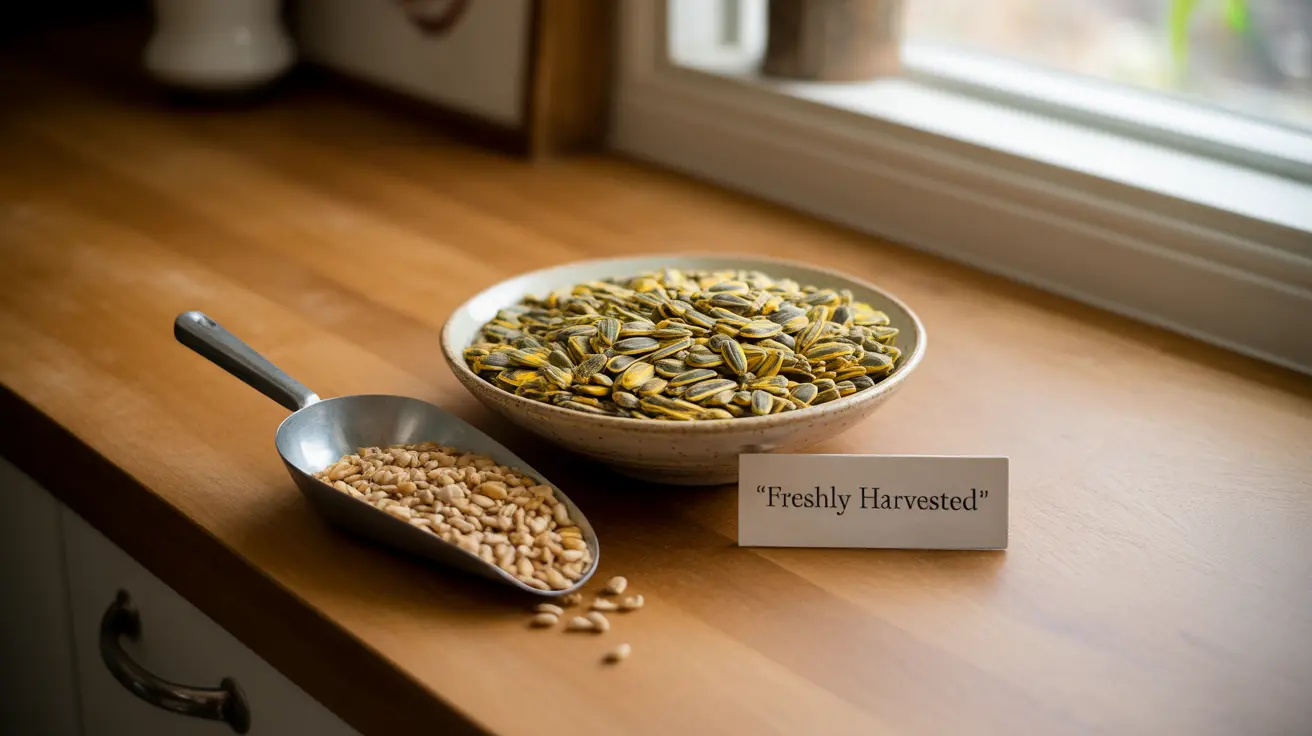Sunflower seeds are nutrient-packed powerhouses that have gained popularity as both a convenient snack and a versatile ingredient. These small but mighty seeds offer an impressive array of health benefits, from supporting heart health to providing essential nutrients. Let's explore whether sunflower seeds are truly good for you and how to incorporate them into a healthy diet.
Nutritional Profile of Sunflower Seeds
Sunflower seeds are remarkably rich in essential nutrients. They contain high levels of vitamin E, a powerful antioxidant, along with significant amounts of selenium, magnesium, and healthy fats. A one-ounce serving (about 30 grams) provides:
- Protein: 5-6 grams
- Healthy fats: 14-15 grams
- Fiber: 2-3 grams
- Vitamin E: 37% of Daily Value
- Selenium: 32% of Daily Value
- Magnesium: 28% of Daily Value
Health Benefits of Sunflower Seeds
Heart Health Support
The combination of healthy fats, fiber, and plant compounds in sunflower seeds makes them excellent for cardiovascular health. The vitamin E content helps protect heart tissues from oxidative stress, while the healthy fats can help maintain balanced cholesterol levels when consumed as part of a healthy diet.
Blood Sugar Management
Despite their small size, sunflower seeds can play a role in blood sugar control. Their combination of protein, healthy fats, and fiber helps slow down digestion and the absorption of sugars, potentially supporting more stable blood glucose levels throughout the day.
Antioxidant Protection
The high vitamin E content in sunflower seeds acts as a powerful antioxidant, helping protect cells from damage caused by free radicals. This protection extends to various body systems, including the immune system, skin, and brain health.
Smart Consumption Guidelines
Portion Control
While sunflower seeds are nutrient-dense, they're also calorie-dense. A recommended serving size is typically 1 ounce (about 30 grams or 1/4 cup), which provides adequate nutrients without excessive calories.
Preparation Methods
To maximize health benefits while minimizing sodium intake, consider these consumption methods:
- Choose unsalted or lightly salted varieties
- Remove shells before eating to control portion size
- Add to salads, yogurt, or oatmeal
- Use as a topping for whole-grain dishes
Frequently Asked Questions
Are sunflower seeds good for weight management given their calorie and fat content? While sunflower seeds are calorie-dense, their protein, fiber, and healthy fats can help promote satiety, potentially aiding in portion control and weight management when consumed in moderation.
What health benefits do vitamin E and selenium in sunflower seeds provide? Vitamin E acts as a powerful antioxidant protecting cells from damage, while selenium supports thyroid function and helps boost immune system response. Together, they provide comprehensive antioxidant protection.
How can sunflower seeds affect blood sugar and diabetes control? The combination of protein, healthy fats, and fiber in sunflower seeds helps slow digestion and sugar absorption, potentially supporting better blood sugar control when included as part of a balanced diet.
What is the best way to eat sunflower seeds to maximize health benefits and limit salt intake? Choose unsalted or minimally salted versions, remove shells before eating, and incorporate them into meals like salads or breakfast bowls rather than eating them alone as a snack.
Are sunflower seeds safe and healthy to eat every day, and what serving size is recommended? Yes, sunflower seeds are safe for daily consumption when eaten in appropriate portions. The recommended serving size is one ounce (about 1/4 cup) per day, which provides beneficial nutrients without excess calories.
Remember to store your sunflower seeds in an airtight container in a cool, dry place to maintain their freshness and nutritional value. When incorporated mindfully into a balanced diet, sunflower seeds can be a healthy addition to your daily nutrition plan.




